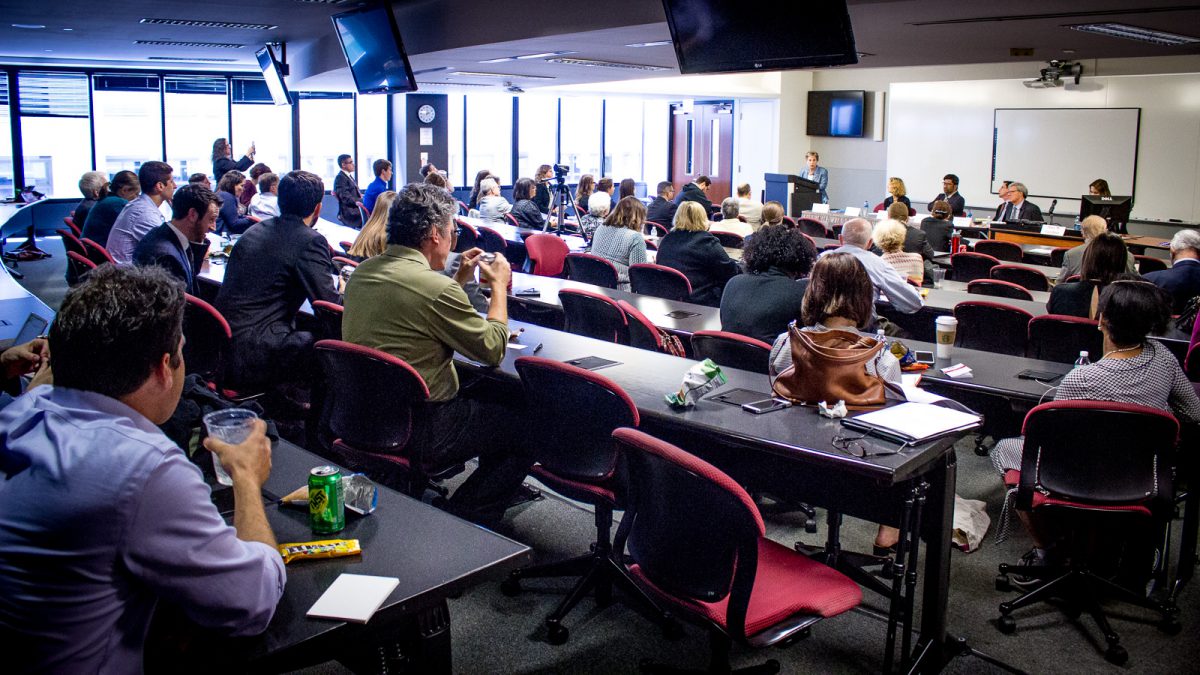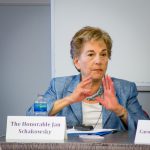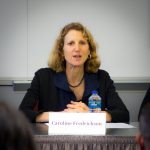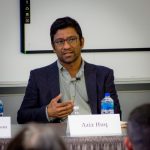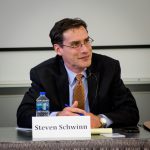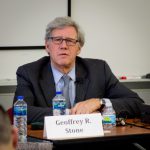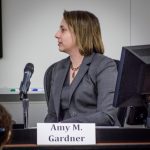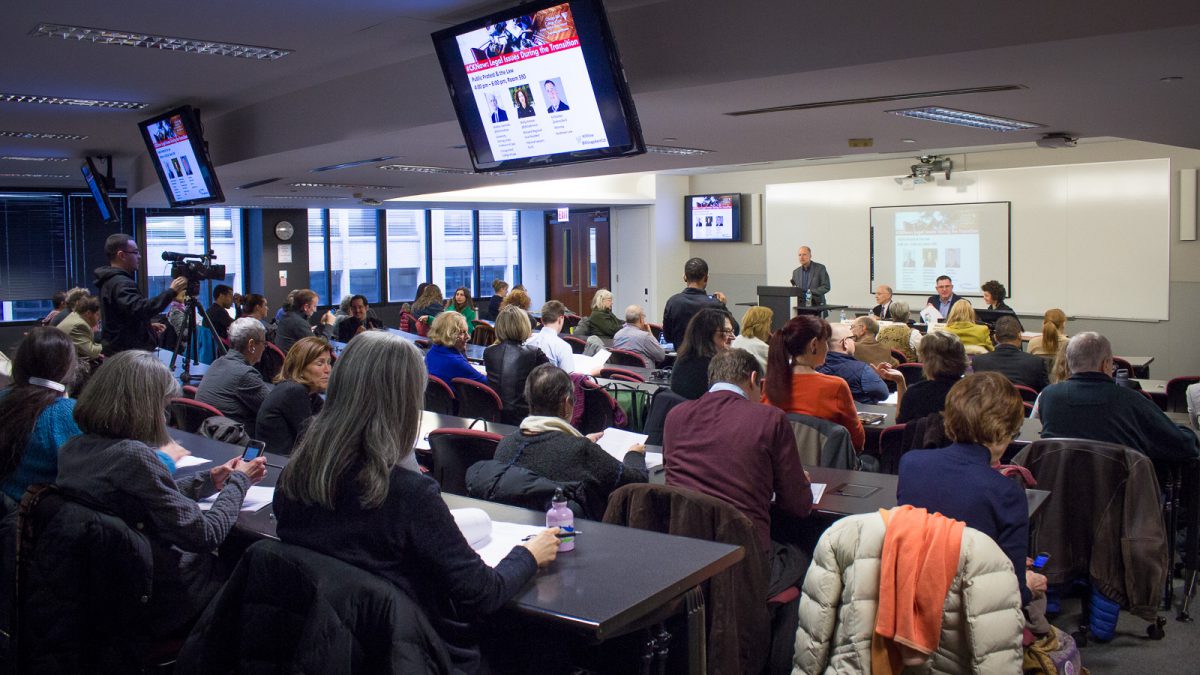The American Constitution Society hosted this program with a distinguished panel to discuss a wide range of topics germane to the Trump administration. These included immigration, separation-of-powers issues with the Russia investigations, the judicial vacancy crisis, and how lawyers can use their law degrees to help address these issues.
Panelists:
- The Honorable Jan Schakowsky, U.S. Representative for Illinois’ 9th Congressional District – @janschakowsky
- Caroline Fredrickson, President, The American Constitution Society for Law & Policy – @crfredrickson
- Aziz Huq, Frank and Bernice J. Greenberg Professor of Law at the University of Chicago
- Steven Schwinn, Associate Professor & Director, Clinical Programs Professor, John Marshall Law School and Member of the ACS Chicago Lawyer Chapter Board of Advisors – @sschwinn
- Geoffrey R. Stone, the Edward H. Levi Distinguished Service Professor at the University of Chicago, Co-Chair of the Chicago Lawyer Chapter Board of Advisors and Member of ACS’s National Board of Advisors – @stone_geoffrey
Moderated by:
- Amy M. Gardner, Director of Lawyer Chapters, The American Constitution Society for Law & Policy

